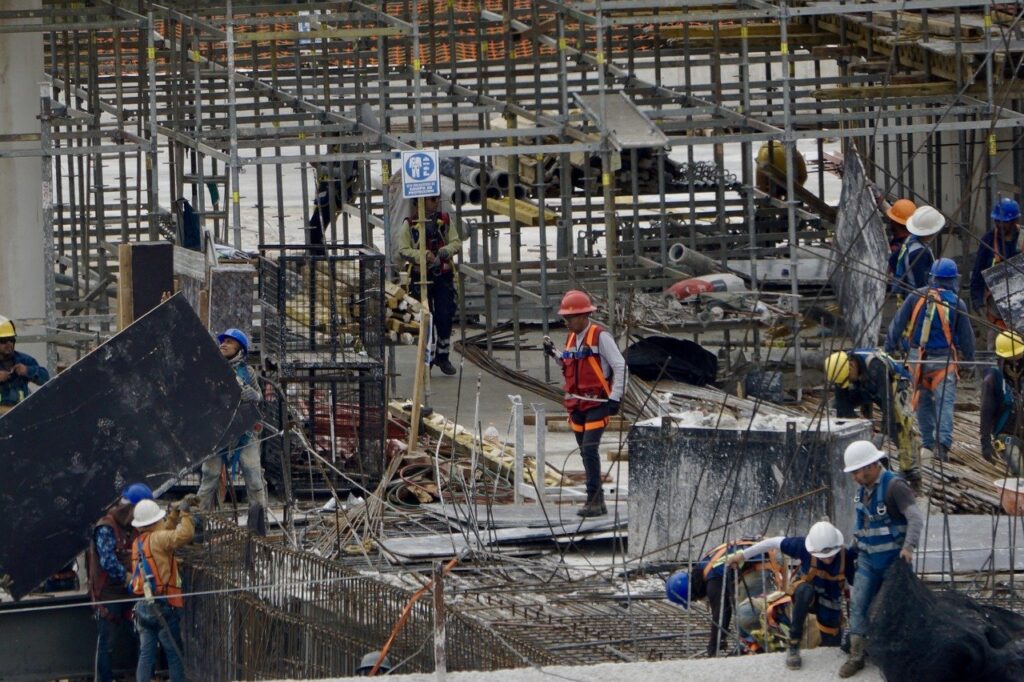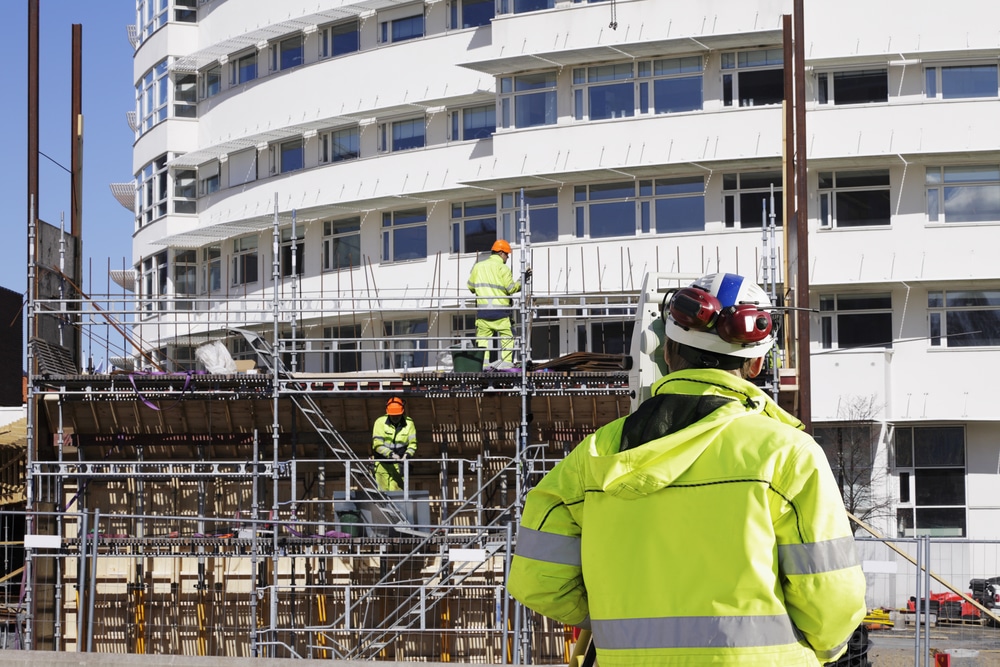Staying on track with each team’s progress at every stage is a never-ending mission for every project manager and site foreman out there. Regardless of the type or size of your project, you always need to have a full overview of the progress made on site and communicate critical issues in an efficient and effective way.
Excel, WhatsApp, Messenger, and email are some of the tools that many project teams in the industry use to stay connected. All these tools are very intuitive and can be extremely useful in our daily lives, but they are not made for construction.
Free ebook: Why WhatsApp and Excel aren’t enough for running complex construction projects
In other words, they don’t have the technical depth to support the complex and time-sensitive processes of a construction project. The reason is their inability to provide stakeholders with field updates that are seamlessly connected to the different project schedules.
Like that, a project manager or a site foreman has to spend an enormous amount of time writing reports, calling people, or attending frustrating progress meetings in an effort to connect all the contextless information and understand what is the next thing their teams have to tackle.
Considering that project and site managers typically have to juggle multiple schedules (master schedule, 3-6 week lookaheads, procurement schedule, and more), it doesn’t take much to understand how error-prone this working approach can be.
Learn more: Construction programme – How to see everything without getting buried in admin work
Furthermore, the decision-making process becomes much slower and admin heavy as all field teams will constantly have to double check with the project manager when it is their turn to show up on site and get working on their tasks.
It is evident then how much value you can bring to your projects if you structure all stakeholder communication around a single source of truth. Having all project information collected in an open, collaborative ecosystem in the cloud, will allow you to increase accountability, avoid miscommunication and reduce the excessive administrative workload. So that you no longer have to spend 40% of your time putting together progress reports that become outdated the moment they are issued.
Field and office communication: How to improve it
Bridging the gap between the site and the office is the first and possibly most crucial step in your effort to see everything that is happening on the field. By doing so, you will always be in a position to prevent time-waste, detect mistakes early and deliver projects sooner. Because at the end of the day, if you stick to your schedule you will also stick to your budget.
But how can you seamlessly connect your boardroom to your construction site? No need to worry about the answer, we’ve got you covered!
Without any further delay, here are the three main steps towards improving your field and office communication to track progress easier and with higher precision:
1. Start from a construction-specific digital tool
If you are following our blog for a while, you must have read this a couple of times already. We can’t stress enough how important it is to use digital solutions that are tailored to construction.
Only then, you can feel sure that your schedule reflects reality at any given time. All communication will take place in a single data source allowing you to connect effectively with multiple project stakeholders so that you can make the right decisions faster and plan your next steps with confidence.
And more importantly, the impact of all information that arrives from the field is instantly visible on the different schedules that you are working on. Like that, you continuously maintain a live overview of where you stand in the project without even having to leave your office.
At the same time, your people on site can effortlessly document progress and submit updates of critical importance just by using their mobile device.
With everyone being kept in full sync, it becomes easier for you to avoid mistakes and deliver successful projects faster and cheaper. If you are able to limit delays and get your project moving forward you eventually also protect your budget.
2. Move everything to a single source of truth
There is no construction-specific tool that isn’t supported by a single source of truth. Many project managers tell us that they still have to use more than 24 hours per month to keep all their programmes up to date.
So they continuously go back and forth with their site foreman searching for the latest data and trying to figure out what each update could possibly mean for the development of the upcoming tasks.
Needless to say that this isn’t good enough. Following this approach, you will quickly find yourself paralysed under a mountain of data that lacks context.
Read also: 5 tips that every site foreman should know about
This is why moving all project communication to the cloud can be a game-changer. Streamlining all collaboration in a centralised place makes it extremely easier for all teams to keep full visibility over their tasks and for you to deal with big chunks of data in a smarter way.
The right people gain access to the right information with just a few clicks making sure that everybody knows where they stand and whether a task or material order needs to be rescheduled.
In other words, when we are talking about introducing a single source of truth what we are really referring to is transitioning from an admin-heavy way of working to an environment of collective intelligence where all project components are connected with each other in full harmony.
And this is something WhatsApp and Excel can’t help you with. It has to go through the implementation of a digital tool that is designed and built solely for the construction industry.
3. Prioritise adoption on site
The next big bet for bringing your site closer to the office is digital adoption. Once you find the right tool for your project, you need to make sure that your field teams will actually use it.
In the beginning, you might see that some people on site aren’t that excited to change their routine. There are also some project managers who worry whether their on-site personnel is tech-savvy enough to go digital with their mobile reporting.
The reality is that if they can use their mobile device for reading the news or for checking their bank account, they should also be able to learn how to use a construction management app. However, it is your responsibility to show them the value that they can get by embracing the new way of working.
To achieve that, training is key. In collaboration with your software provider, you should organise detailed training and onboarding sessions where all team members will have the opportunity to ask questions and become familiar with the app.
Lastly, the ease of use of your new digital solution is also an important parameter when it comes to site adoption. Individuals on the field should be able to submit updates and report progress in a few simple steps. That’s something that is typically taken into consideration by an industry-specific app.
Connect everyone. Manage better!
Having a live, shareable view of your construction site can play a significant role in your effort to improve communication in your project. When you see more, you communicate better and as a result, you can improve teamwork and plan ahead much more effectively.
But to make this happen, you need to work with the right tools. With that in mind, we invite you to download for free our latest ebook about how you can increase site visibility and ensure that your programme reflects reality at all times.
You can access it just by clicking below:





